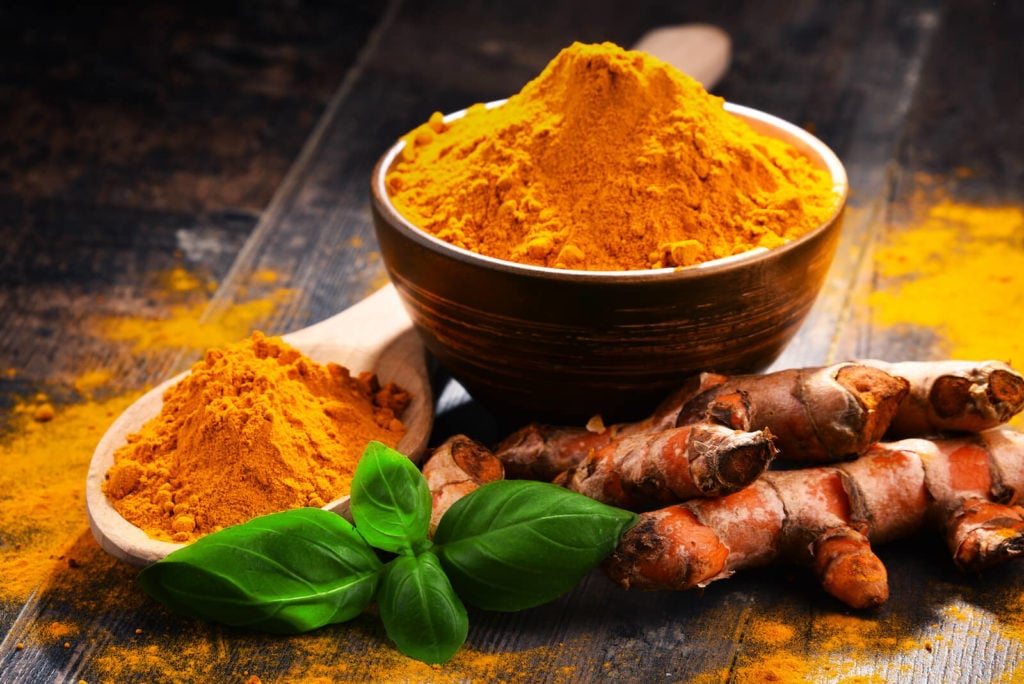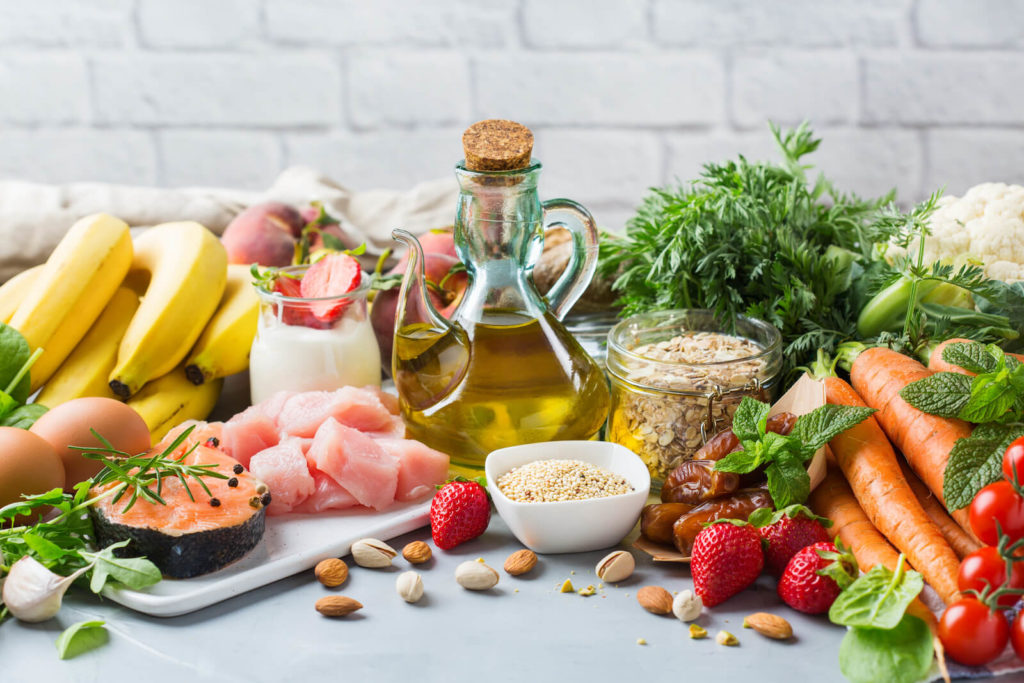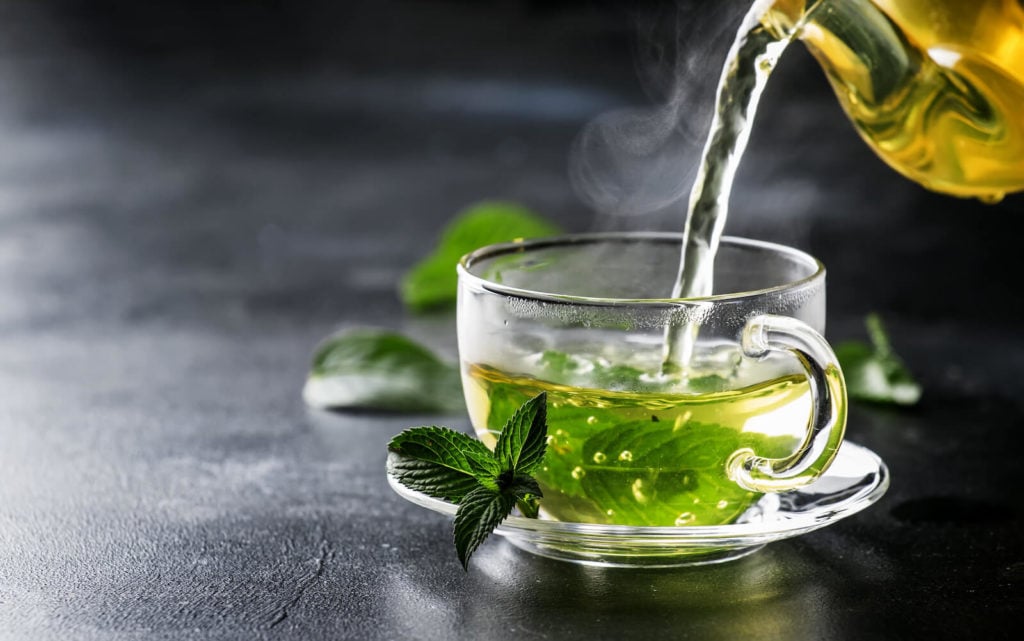What Natural Remedies for Rheumatoid Arthritis Should You Try?
Address Rheumatoid Arthritis Naturally With Diet, Probiotics, Turmeric, and More
- Rheumatoid Arthritis|
- Symptoms|
- Medications|
- Natural Remedies|
- Gut Health|
- Probiotics|
- Diet|
- Additional Strategies|
- Take Control|
- The best diet for rheumatoid arthritis (RA) is one that addresses inflammation and lowers immune reactivity.
- As a common root of systemic inflammation in the body, focusing on improving gut health will also likely improve RA symptoms.
- Some of the best natural remedies for rheumatoid arthritis are probiotics, turmeric, omega-3 fatty acids, green tea, and consistent exercise.
- RA fatigue, an often discounted yet common symptom, can be addressed through diet and lifestyle interventions.
Focusing on gut health by modifying your diet, taking probiotics, using targeted supplements like turmeric and omega-3 fatty acids, incorporating some kind of exercise into your regular routine, and managing stress are all natural remedies for rheumatoid arthritis (RA) that can help to reduce symptoms including pain and fatigue.
Joint or arthritis pain, heavy fatigue, stiffness and swelling are just a few of the symptoms that make rheumatoid arthritis difficult to deal with every day. Often, doctors prescribe medications to hopefully reduce these symptoms, but they often come with side effects in the short and long term.
Whether or not you choose to take medication for rheumatoid arthritis, diet and lifestyle modifications and certain natural remedies can be very helpful in calming inflammation, restoring gut health, and balancing the nervous system — all of which allow a body under autoimmune attack to reset and discontinue the inflammatory response.
In this article, we’ll review several natural remedies for treating rheumatoid arthritis, including therapeutic diets, probiotics, turmeric, omega-3 fatty acids (fish oil), green tea, exercise, and mindfulness activities.

What Is Rheumatoid Arthritis?
Rheumatoid arthritis (RA) is an inflammatory autoimmune disease that affects the joints. It can occur anywhere in the body and affects almost every organ, but it often prominently affects multiple joints of both hands. It also typically involves morning stiffness for over one hour.
There are two main types of RA: seropositive and seronegative. People with seropositive RA have certain antibodies to proteins in the body that activate the immune system and cause joint damage, bone erosion, and severe disease. These antibodies are present in about 50% of RA patients and may show up 5-10 years before symptoms appear [1].
The second type of RA, seronegative, simply indicates the absence of these antibodies [2]. But for some people, even without the antibodies present, some trigger — perhaps environmental or stress-related — causes the immune system to become overactive and initiate RA symptoms.
Note: Though somewhat similar, rheumatoid arthritis is not the same as osteoarthritis. Osteoarthritis is an age-related disease where bones and joints break down from use over time, often affecting hip, knee, and thumb joints. Osteoarthritis is not autoimmune-related.
Rheumatoid arthritis affects 0.4%-1% of the population in North America and is significantly more prevalent in women than men. For every 2-3 women with RA, one man has it. Prevalence of the disease also increases with age [1].
Rheumatoid Arthritis Symptoms
Common symptoms of rheumatoid arthritis include:
- Joint pain, joint tenderness, stiffness, and inflammation
- Swelling and deformity of the affected joints
- Fatigue
- Rheumatoid nodules, lumps under the skin that form on the elbows, heels, and toes
- Carpal tunnel syndrome
- Tenosynovitis (inflammation of the lining around a tendon)
- Finger deformities

RA Fatigue
Fatigue occurs in 80% of rheumatoid arthritis patients, with 50% rating it as severe [3]. RA fatigue is described as “a loss of physical and mental energy, or weariness and lack of motivation, that is overwhelming” [3].
And yet, this draining symptom often goes unrecognized and unaddressed by healthcare providers. Despite this, fatigue should be taken seriously and can be addressed.
An interesting systematic review suggests that fatigue in RA may actually be a protective mechanism by the body to encourage rest and prevent further pain [4]. However, there are many natural remedies and strategies we can use to reduce fatigue and encourage a more balanced nervous system (whether they are used alongside medication or not).
Conventional Medical Treatment for RA
Research suggests the most effective treatments for RA are prescription medications. But, these may come with negative side effects.
Common medications used to treat rheumatoid arthritis include:
- Glucocorticoids such as prednisone and hydrocortisone to control pain and inflammation short term while transitioning to a longer term medication
- DMARDs — disease-modifying, antirheumatic drugs — including methotrexate, sulfasalazine, leflunomide, and hydroxychloroquine [5, 6, 7]
- Biologic drugs such as Adalimumab, Etanercept, and Infliximab [7, 8]
- Non-steroidal antiinflammatory drugs (NSAIDs) and acetaminophen for temporary pain relief [9, 10, 11].
Side effects for these medications range from nausea to liver toxicity, but everyone is different. Your experience with side effects may be very mild, nonexistent, or more difficult. But whatever medication you choose, diet and lifestyle modifications can be just as critical interventions as pharmaceutical therapies.
Natural Remedies to Relieve RA Symptoms

Here’s the good news: Diet and lifestyle interventions have been shown to improve most, if not all, of the factors associated with the development of RA.
While most current studies show the most significant benefits when natural treatments are combined with conventional medications, complementary therapies are worth trying.
Most of the natural remedies we’re discussing are low cost, noninvasive, have a low risk of side effects, and may provide general, widespread health benefits. So, even if evidence is somewhat limited for certain natural treatments, if you’re struggling to find relief from symptoms of RA, holistic therapies are worth pursuing.
Of course, always work with a trusted healthcare practitioner to figure out your personalized RA treatment plan.
Focus on Gut Health
Since gut health is at the root of systemic inflammation in the body, healing your gut is likely to be a helpful strategy when it comes to improving RA symptoms and lowering overall inflammation. Focusing on gut health is also important in addressing RA because:
- Gut microbiome composition is altered for RA patients and those with undiagnosed joint pain [12, 13, 14, 15].
- Leaky gut may cause or contribute to RA symptoms [16, 17, 18, 19, 20].
- Many of the main contributors to RA, such as metabolic syndrome, gut infections, and vitamin and mineral deficiencies, begin with or are exacerbated by gut inflammation [21, 22, 23, 24].
Namely, finding the right therapeutic diet and probiotics can help lower intestinal inflammation, improve gut health, and reduce RA symptoms.
Probiotics for RA

While more research still needs to be done on the effects of probiotics for treating RA, preliminary evidence suggests that they can be useful for treating pain, stiffness, inflammation, and disease activity.
A 2020 systematic review of 20 RCTs (more than 1,500 participants) found evidence that probiotics had positive effects on RA disease activity [25].
A 2017 systematic review and meta-analysis of nine randomized clinical trials (RCTs) including 361 patients found that probiotics lowered the pro-inflammatory cytokine interleukin-6, which plays a role in joint destruction and disease progression in rheumatoid arthritis. However, the study noted that they did not alter disease activity scores. Scientists concluded that more research is needed [26].
Another 2020 systematic review of 12 studies (10 RCTs and two non-randomized/non-controlled clinical trials) found that probiotics (Lactobacillus species only) taken for 60 days on average yielded a statistically significant benefit on quality of life in RA patients. All types of probiotics led to small but significant pain reductions, and Bifido/Lacto blends led to lower concentrations of C-reactive protein, an inflammatory marker [27].
The bottom line: When you use probiotics to rebalance the gut and lower inflammation, RA symptoms may improve. In this way, probiotics can be one part of a foundational diet and lifestyle strategy to support patients with RA.
What’s the Best Diet for Rheumatoid Arthritis?

Another key component to addressing rheumatoid arthritis integratively is through finding and customizing your therapeutic diet. Keep in mind that any diet that quells inflammation and lowers autoimmune reactivity is likely to be helpful for RA. These are some of the diet options that RA patients may find useful to help manage symptoms:
- Elimination diet
- Elemental diet
- Mediterranean diet
- Paleo diet
- Low FODMAP diet
- Low nightshade diet
So, how do you decide which diet framework to try? The most fundamental place to start with changing your diet is an elimination diet. The point of an elimination diet is to eliminate common trigger foods that may cause inflammation and set off an autoimmune reaction, and then to identify which ones are problematic for you specifically. Once your symptoms are under control, you may try adding back in certain foods like dairy products, for example, monitoring how you feel and ultimately building up to a diet that is as broad as possible while continuing to reduce inflammation and symptoms.
For most people, the best approach is to start with a less restrictive anti-inflammatory diet like the Mediterranean or Paleo diet, and to only proceed to something more restrictive like a low FODMAP diet or low nightshade diet if your symptoms do not improve after a few weeks.

The Mediterranean diet is the most studied diet for managing RA symptoms. Two systematic reviews of 90 studies found that the Mediterranean diet improved disease activity in RA patients [25, 28].
However, just because it’s the most studied diet doesn’t necessarily mean it’s the best. Another umbrella systematic review concluded that the Mediterranean diet makes little difference in pain or RA disease activity [29]. Still, it may be an easier place to start for those who have never considered a diet change before.
Interestingly, one randomized clinical trial concluded that an elemental diet may be just as effective as corticosteroids for treating RA [30]. This supports the idea that RA manifestation is directly connected to gut health, so a temporary elemental diet that is able to reset the gut can also calm RA symptoms. Once the period of the elemental diet is over (usually no more than 2-3 weeks), foods can be slowly reintroduced to see whether certain foods cause symptoms to reemerge.
Another option is the low-FODMAP diet, which restricts certain fermentable carbohydrates that may irritate the gut. There are no specific studies looking at low-FODMAP diets for RA at this time. However, a 2021 literature review stated that low-FODMAP and gluten-free diets may help autoimmune patients with functional GI disorders, like IBS [31]. Low-FODMAP diets have also been helpful to address pain and fatigue in fibromyalgia patients, so it is possible that a low FODMAP diet could help reduce joint pain and increase energy in RA patients [32].
Additional Strategies for RA
Alongside diet and probiotics, there are many other complementary supplements and lifestyle changes that may help treat rheumatoid arthritis.
Turmeric
Turmeric, a popular Indian spice that contains the anti-inflammatory polyphenol curcumin, may help reduce disease activity, pain, joint swelling and tenderness, inflammatory markers, and rheumatoid factor (antibodies that attack healthy tissues), according to a 2021 systematic review of 259 RA patients [33].
You can add turmeric/curcumin into your therapeutic plan through high-quality supplements as well as by cooking with the actual spice.
Omega-3 Fatty Acids (Fish Oil)
Omega-3 fatty acids, aka fish oil, also has therapeutic potential for treating RA. A 2012 systematic review and meta-analysis looked at over 900 patients from Europe, the U.S., Australia, Thailand, Brazil, and Bangladesh. It showed a somewhat consistent yet modest benefit of fish oil supplementation on joint swelling and pain, morning stiffness, generalized pain, disease activity, and the need for non-steroidal anti-inflammatory drugs (NSAIDs) in RA patients [34].
Another systematic review of 70 studies found evidence that high doses of omega-3 polyunsaturated fatty acids reduced RA disease activity and improved the effectiveness of RA drugs (56). A third review of 1,183 RA patients found that omega-3 fatty acid supplements (especially 3-6 g/day) reduced pain in RA patients [35].
You can also increase your omega-3 fatty acid intake by consuming more wild caught, fatty fish such as salmon and mackerel, and whole plant foods like avocado, walnuts, pumpkin seeds, and squash, if you tolerate those foods.

Green Tea
Green tea is well known for an abundance of antioxidants and anti-inflammatory properties.
A 2016 randomized clinical trial of 120 older adults actually showed that those treated with green tea and exercise therapies had clinical improvements in disease activity (inflammatory markers CRP and ESR), health quality (number of swollen and tender joints, functional ability), and markers of bone resorption and formation (ie, bone formation markers increased, indicating possible reductions in bone loss and osteoporosis) [36]. These improvements were greater than those treated with a combination of infliximab and green tea (without exercise).
Exercise
Exercise and physical therapy are some of the most important therapies for rheumatoid arthritis to manage joint stiffness and pain and maintain range of motion. They may help to decrease fatigue as well.
A 2021 systematic review and meta-analysis of 1,010 RA patients found evidence that, compared to the control group, resistance exercise reduced disease activity in 28 joints, inflammation, and the length of time it took to walk 50 feet [37].
Another review stated that, compared to non-physical activity, home-based physical activity (low-impact flexibility and strengthening exercises with some aerobic, breathing and posture exercises) improved:
- Quality of life
- Functional ability
- Disease activity
- Pain
They also concluded that home-based exercise was just as helpful as clinic-based exercise [38].
Stress Management
A 2019 systematic review found that yoga reduced inflammatory biomarkers in chronic conditions, including rheumatoid arthritis [39]. Of course, yoga is also considered a form of exercise, but a big part of yoga is breathing and mindfulness, too.
Another 2019 umbrella review found that RA fatigue improved somewhat with psychosocial interventions, including cognitive skills training, cognitive behavioral therapy, mindfulness, lifestyle management, self-management, contracting/goal setting, coping strategies, and guided imagery [40].

Take Control of Your Symptoms with Natural Remedies for Rheumatoid Arthritis
The bottom line is that there are clear steps to treat rheumatoid arthritis naturally. Start by identifying your ideal therapeutic diet. Next, add probiotics to support your gut and reduce inflammation. From there, you can try different natural remedies like turmeric and omega-3 fatty acids, as well as exercise and mindfulness practices like yoga.
If you’re interested, you can find out more about the Ruscio Institute for Functional Health and how we approach healing with autoimmune diseases, including rheumatoid arthritis.
Dr. Michael Ruscio is a DC, natural health provider, researcher, and clinician. He serves as an Adjunct Professor at the University of Bridgeport and has published numerous papers in scientific journals as well as the book Healthy Gut, Healthy You. He also founded the Ruscio Institute of Functional Health, where he helps patients with a wide range of GI conditions and serves as the Head of Research.
Discussion
I care about answering your questions and sharing my knowledge with you. Leave a comment or connect with me on social media asking any health question you may have and I just might incorporate it into our next listener questions podcast episode just for you!